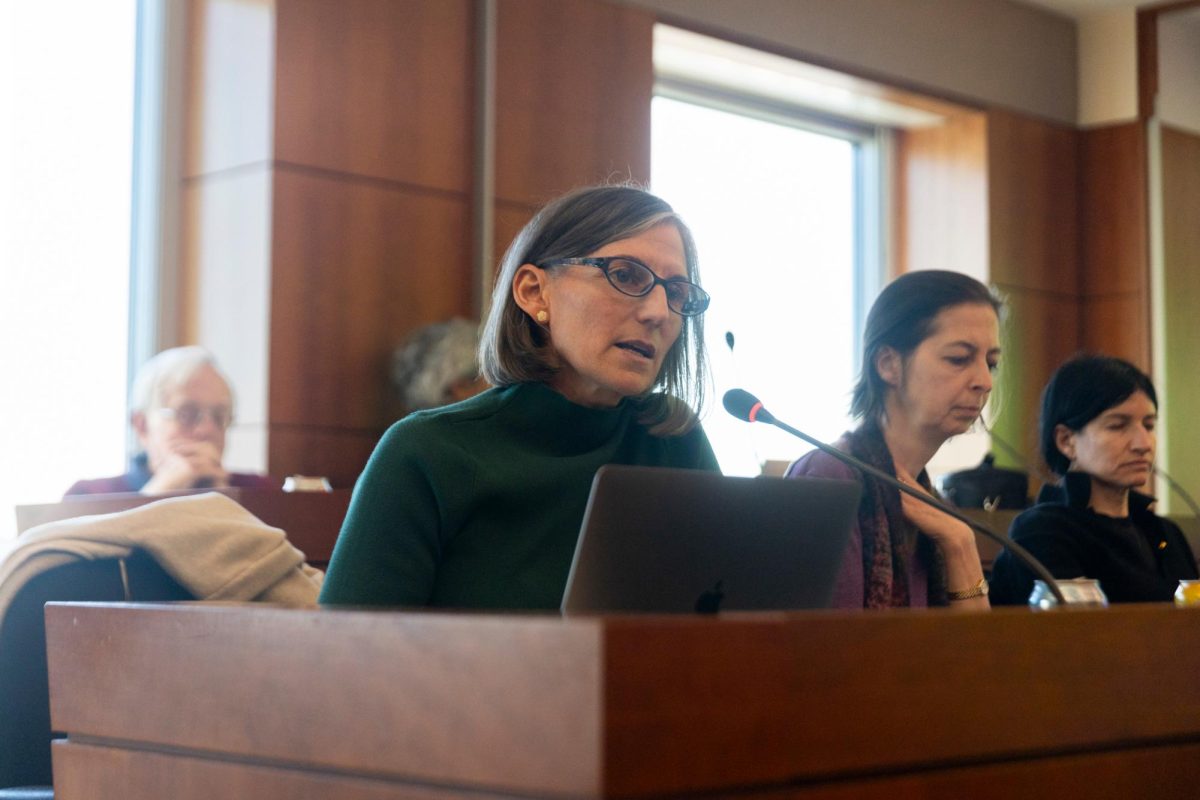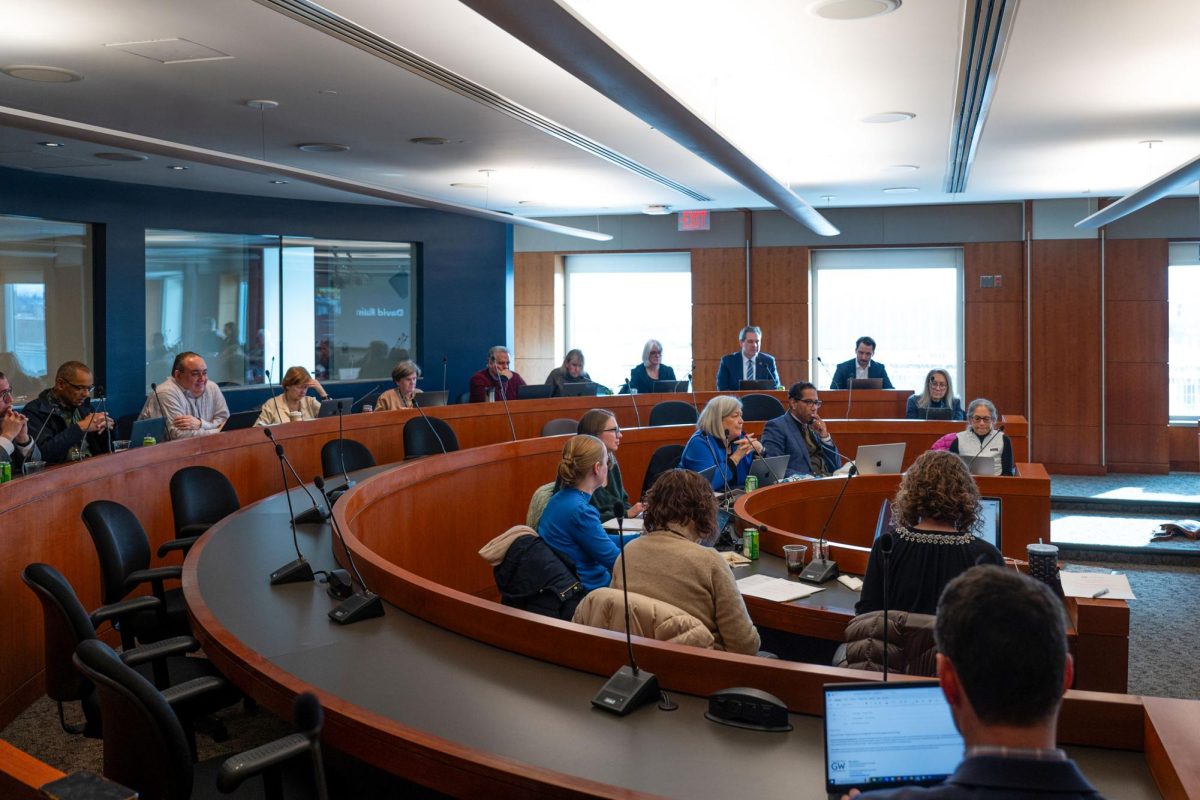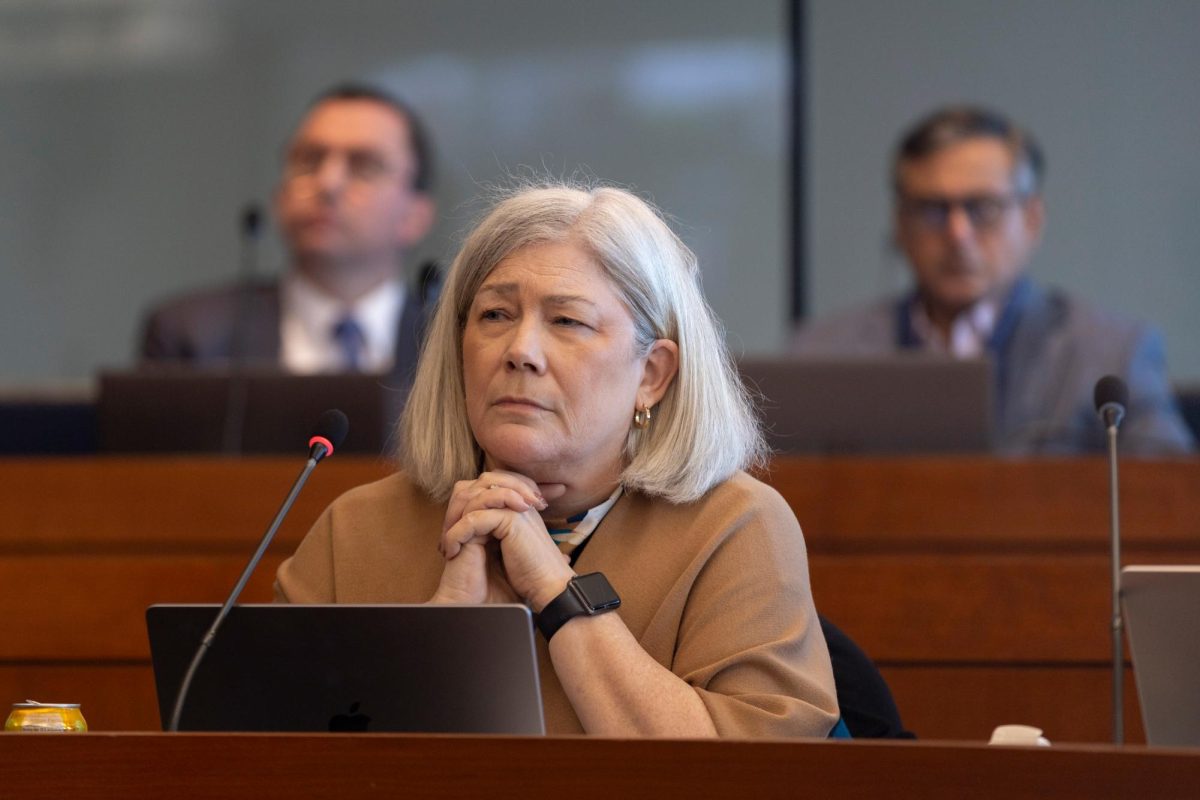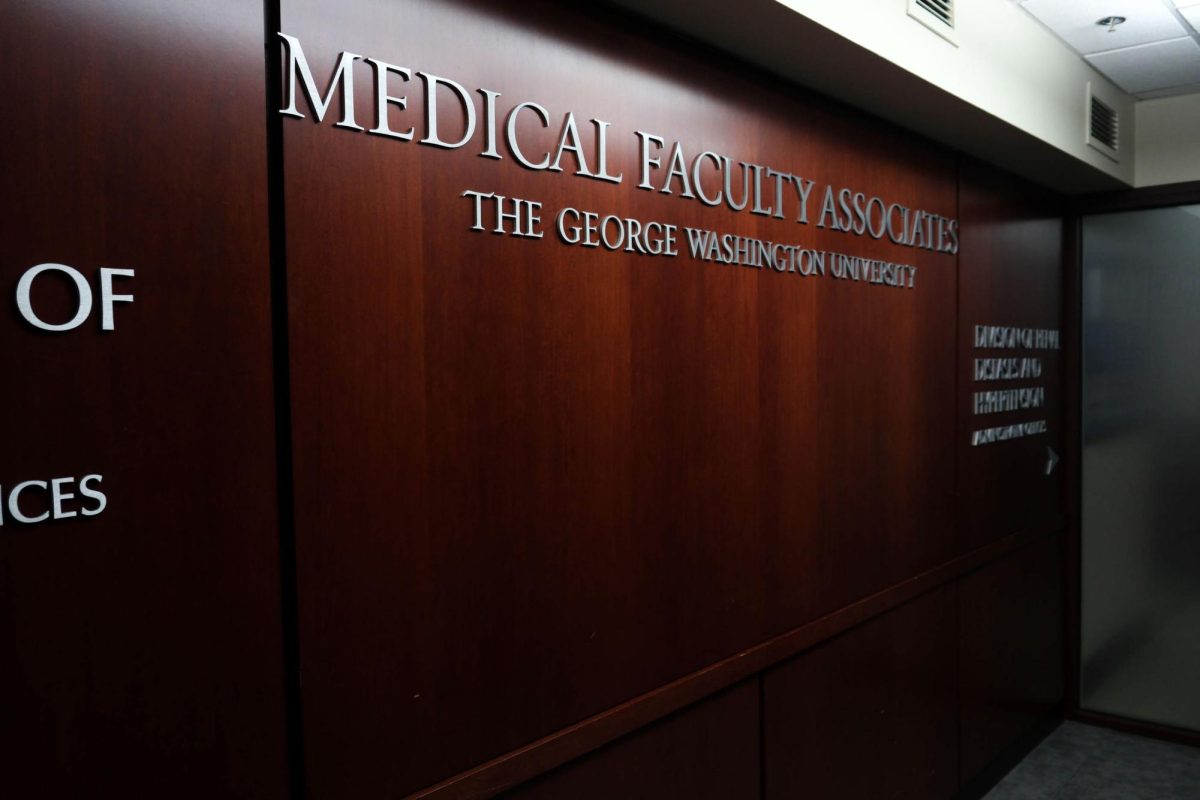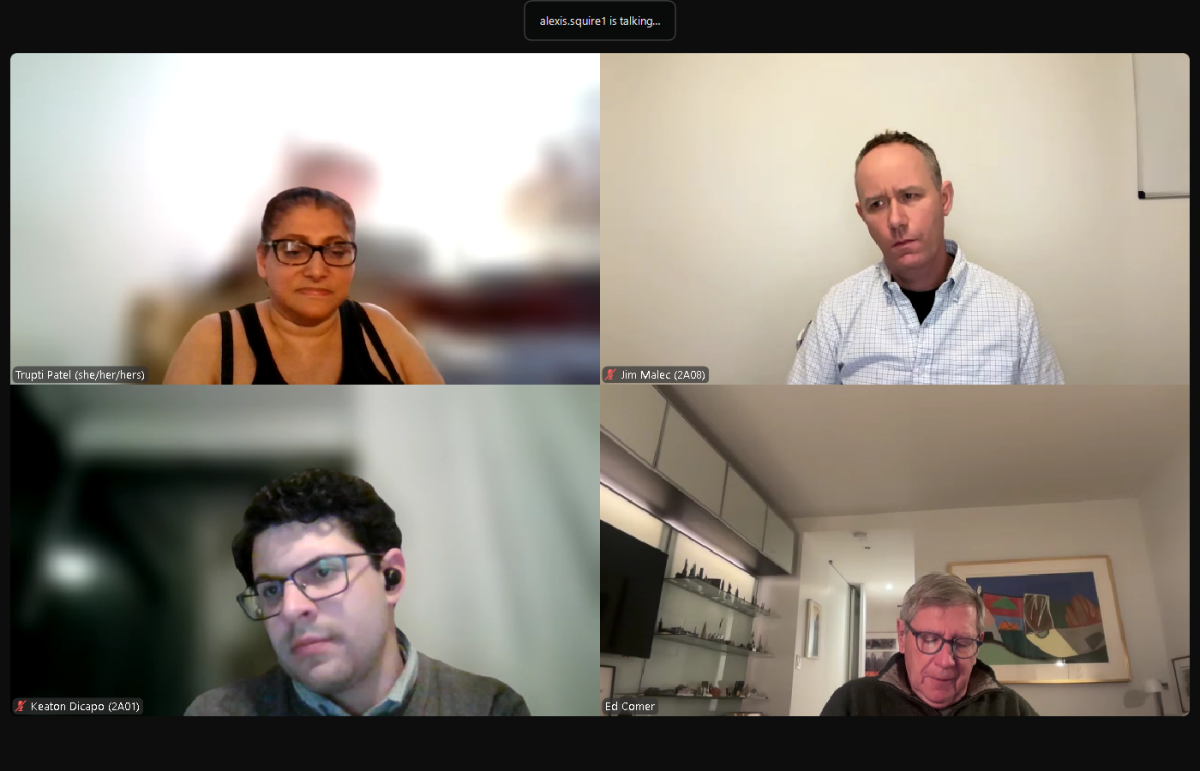GW offers some of the country’s most prestigious online degree programs, according to updated rankings that U.S. News & World Report released last month.
The site ranked GW No. 15 out of 359 universities in online bachelor’s programs, No. 8 in online bachelor’s programs for veterans and No. 4 in online master’s programs in nursing administration following a survey of more than 1,800 university programs across the country. Experts in online higher education said universities are expanding online curricula to diversify student enrollment, generate revenue and showcase their strongest programs like public health and business administration at GW.
Last month’s report signals an improvement from a 2021 U.S. News & World Report ranking that listed GW as No. 19 among online bachelor’s programs and No. 11 in online bachelor’s programs for veterans. The University’s rise in the rankings comes after officials added online programs in fields like computer science during the pandemic.
Provost Christopher Bracey said in a release in February 2023 that he is committed to enhancing the profile of online programs – a “continued focus” that delivers high-ranking online education to students at different stages in their educational careers.
“As we continue to relentlessly pursue excellence in teaching and research, online education will remain an essential element of our academic programming,” Bracey said in the release.
The Columbian College of Arts and Sciences leads the University with 156 master’s and bachelor’s degree programs, followed by the School of Medicine and Health Sciences with 48, the Milken Institute of Public Health with 35, the School of Business with 32 and the Graduate School of Education and Human Development with 31. After GSEHD comes the College of Professional Studies with 25 online programs, trailed by the School of Engineering and Applied Sciences with 22 and the Elliott School of International Affairs, the School of Nursing and GW Law with 13 courses each, according to the University’s enrollment dashboard.
In 2022, graduate students accounted for 87.7 percent of students enrolled in online programs at GW, totaling 5,664. Milken, GWSB and SEAS contained the majority of online graduate students, according to the data. 570 online undergraduate students were enrolled in online programs last year, accounting for 8.8 percent of all online students. More than half of those undergraduates studied in SMHS.
Milken granted 1,069 online master’s degrees in public health, accounting for 21.9 percent of all online master’s degrees awarded last year. Online master’s degrees in business administration accounted for 9.7 percent of all degrees with a total of 474. Master of Science in Systems Engineering degrees reached 214, or 4.4 percent of all degrees, according to the Office of Institutional Research and Planning.
The U.S. News & World Report assessment is based on categories weighing how programs can administer “affordable degrees” in a “reasonable” amount of time. Academic officials evaluate student participation in courses, diversity of online learning technologies and faculty academic credentials to account for “intangible factors” influencing programs, according to the U.S. News & World Report methodology page.
Experts in online higher education said universities can profit from increased enrollment through large online courses, and U.S. News rankings present helpful information about universities to prospective students.
Dan Hillman, the associate director of instructional design at Boston University, said universities continue to emphasize online learning programs post-pandemic to increase student enrollment and retention and generate revenue.
He said constraints like limited classroom seating and travel costs associated with in-person learning encourage some students to opt for online learning, allowing universities to rake in more money through larger courses. Hillman said higher education institutions may employ adjunct faculty in online courses due to the low cost of employing them because they are part-time workers.
“It makes it easier to find teaching staff particularly if you’re going to offload it to adjuncts,” he said. “Just like you have a larger pool of students from anywhere, you have a larger pool of adjuncts from anywhere to be teaching these things.”
The University enrolled 6,462 students online in 2022, a 138 percent rise from 2012 when it enrolled 2,701 students, according to enrollment data.
An online Master of Public Health degree at GW consists of 45 credits at $1,800 per credit, totaling an estimated $81,000 in tuition. Beginning in the fall of 2020, officials increased the cost per credit of an online master’s degree in business administration from $2,025 to $2,285, amounting to $106,252.50 in tuition for the 46.5 credits required for the degree. One online credit hour for a master’s degree costs $1,395 per credit hour in the School of Nursing, between $1,050 and $1,075 in SEAS, $920 to $1,170 in the Graduate School of Education and Human Development and $1,075 to $1,780 in the College of Professional Studies.
Ten online master’s degrees at Boston University charge $955 per credit hour, while Georgetown University College of Arts and Sciences charges $2,538. The University of Miami charges $2,310 per credit hour for an online business master’s degree.
Evangeline Cummings, the senior assistant provost and director of UF Online at the University of Florida, said online degree programs allow universities to reach students who want to earn undergraduate degrees but cannot commit to campus because they may have full-time jobs or families.
“There are so many adults, millions of adults in the United States with some college credit but no college degree,” she said. “For most people, it’s not going to be practical to expect them to enroll in on-campus programs and to live in dormitories.”
Cummings said the pandemic showcased the complexity and investment that goes into high-quality online learning programs and pushed higher education administrators to support faculty who teach online classes.
She said the U.S. News rankings are an “objective” source of information for prospective students who want to learn more about different online programs.
“A lot of first-generation students in particular look to tools, like the rankings, to kind of understand the relative value of different programs,” she said.
Mary Churchill, an associate dean for strategic initiatives and community engagement at Boston University’s Wheelock College of Education & Human Development, said some possible challenges for online degree programs are the divide between students and instructors resulting from the lack of face-to-face connection and unequal levels of student access to technology.
“Online education assumes a certain level of connectivity in the household that not all of our students have,” she said. “Parents would drive to a nearby library or university to connect to the Wi-Fi to take their classes, so not every household has the broadband connectivity they need to be able to fully participate in online classes.”



